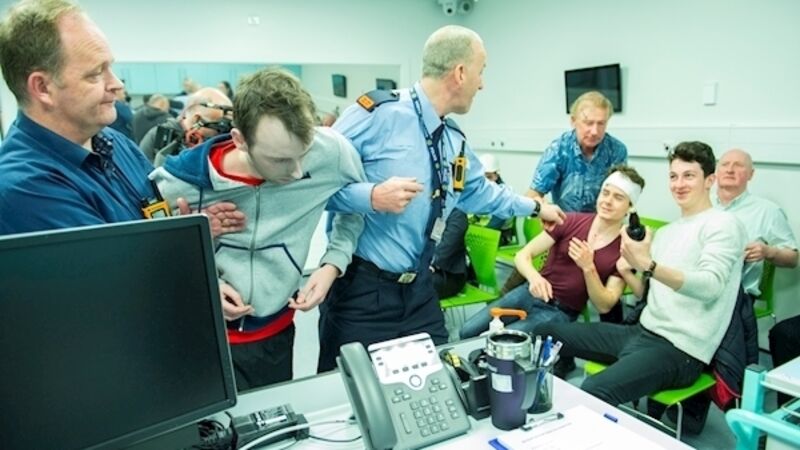Joint forces hail success of incident simulation

The day got off to a predictable start for Garda Dónal Daly and Garda Deirdre Hayes at the regional communications centre, Anglesea Street Garda Station, Cork.
By mid-morning, they were knee deep in a major incident after an incoherent civilian they’d arrested and taken to hospital for treatment turned out to have a potentially lethal biohazard in his possession.













